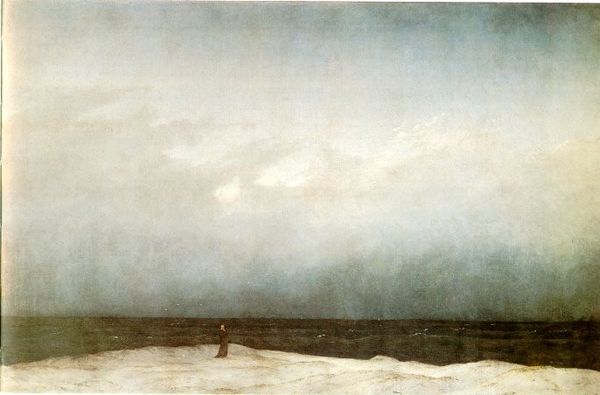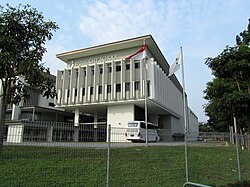
Back بوابة:علم النفس Arabic Портал:Психология Bulgarian دەروازە:دەروونناسی CKB Portál:Psychologie Czech Portal:Psychologie German Portal:Psicología Spanish Portaal:Psühholoogia Estonian درگاه:روانشناسی Persian Teemasivu:Psykologia Finnish Portail:Psychologie French
The Psychology Portal
| Part of a series on |
| Psychology |
|---|
Psychology is the scientific study of mind and behavior. Its subject matter includes the behavior of humans and nonhumans, both conscious and unconscious phenomena, and mental processes such as thoughts, feelings, and motives. Psychology is an academic discipline of immense scope, crossing the boundaries between the natural and social sciences. Biological psychologists seek an understanding of the emergent properties of brains, linking the discipline to neuroscience. As social scientists, psychologists aim to understand the behavior of individuals and groups.
A professional practitioner or researcher involved in the discipline is called a psychologist. Some psychologists can also be classified as behavioral or cognitive scientists. Some psychologists attempt to understand the role of mental functions in individual and social behavior. Others explore the physiological and neurobiological processes that underlie cognitive functions and behaviors.
Psychologists are involved in research on perception, cognition, attention, emotion, intelligence, subjective experiences, motivation, brain functioning, and personality. Psychologists' interests extend to interpersonal relationships, psychological resilience, family resilience, and other areas within social psychology. They also consider the unconscious mind. Research psychologists employ empirical methods to infer causal and correlational relationships between psychosocial variables. Some, but not all, clinical and counseling psychologists rely on symbolic interpretation. (Full article...)
Selected article -
Pathlight School is a special school for children with autism in Singapore. Founded in 2004, it is run by the non-profit Autism Resource Centre and comprises one half of the national educational provision for autistic children. The school educates students in social and life skills, teaches them mainstream curriculum subjects and prepares them for employment in an autism friendly environment. (Full article...)
Selected image -

Quotes -
- "Cogito, ergo sum: I think, therefore I am." — René Descartes
WikiProjects
Selected biography -

Salvator P. Cupcea (also known as Salvador Cupcea; August 8, 1908 – 1958) was a Romanian psychologist, physician, and political figure. From beginnings as a researcher for the Victor Babeș University of Cluj, alongside his friend Alexandru Roșca, he became noted as a pioneer of experimental psychology and psychoanalysis, studying in particular the social marginals. He later immersed himself in the social hygiene and eugenics movement, also specializing in genetic medicine, biological anthropology, and criminology. A collaborator of Iuliu Moldovan, he taught classes at the latter's Institute for much of World War II, when he focused on studying the intelligence of various body types.
During those years, Cupcea flirted with fascism, and endorsed a biopolitical "national hygiene" program. In 1944, he reemerged as a supporter of the Romanian Communist Party and liberal eugenics, serving as Health Minister and representative to the World Health Organization. A founder of the Cluj Medical University and administrator of its Psychiatric Clinic, his final work was in human ecology, food science, and cardiology. (Full article...)
Did you know (auto-generated) -

- ... that the psychological inner space genre was a rebellion against the traditional focus of science fiction on literal outer space?
- ... that Susan Silk developed ring theory when a colleague said that Silk's breast cancer wasn't just about her?
- ... that the 2024 psychological horror game Mouthwashing utilises non-diegetic scene transitions that mimic glitches and crashes?
- ... that the first day of filming of the psychological thriller Farah coincided with the beginning of the 2019 Lebanese protests?
- ... that bereavement support groups are one of the most common services offered for grief but have little evidence of improving psychological outcomes?
- ... that food psychology research has found that the COVID-19 pandemic led to both reduced and increased consumption of junk food among different geographical populations and educational backgrounds?
Subcategories
Related portals
More did you know -

- ... that the book Help at Any Cost triggered hearings by the United States House Committee on Education and Labor into behavior modification techniques used by the tough love teen industry?
- ... that the book Brainwashing: The Science of Thought Control was runner-up in the 2005 Times Higher Education Supplement Young Academic Author Award?
- ... that according to A Bright Red Scream, millions of Americans regularly use razors, knives or broken glass to intentionally injure themselves? (self-inflicted cuts pictured)
- ... that Herbert Freudenberger fled Germany alone during WWII at the age of twelve, later becoming a well-known psychologist in the United States?
- ... that simply knowing about and understanding the illusion of transparency might help reduce speech anxiety?
Psychology topics
Recognized content
Associated Wikimedia
The following Wikimedia Foundation sister projects provide more on this subject:
-
Commons
Free media repository -
Wikibooks
Free textbooks and manuals -
Wikidata
Free knowledge base -
Wikinews
Free-content news -
Wikiquote
Collection of quotations -
Wikisource
Free-content library -
Wikiversity
Free learning tools -
Wiktionary
Dictionary and thesaurus
© MMXXIII Rich X Search. We shall prevail. All rights reserved. Rich X Search






















